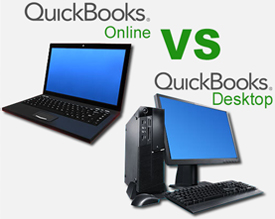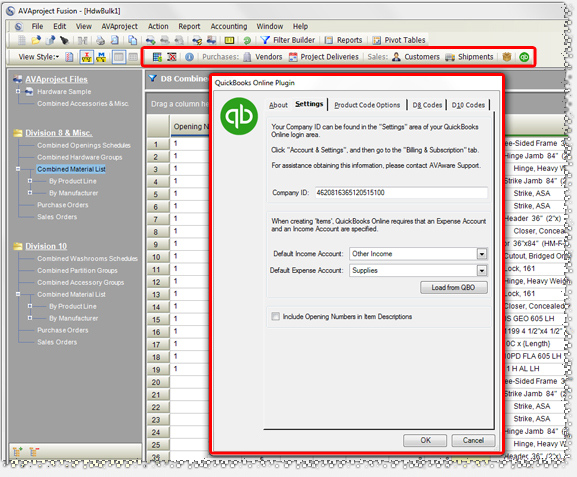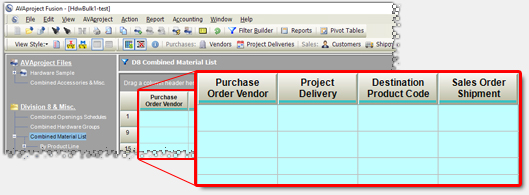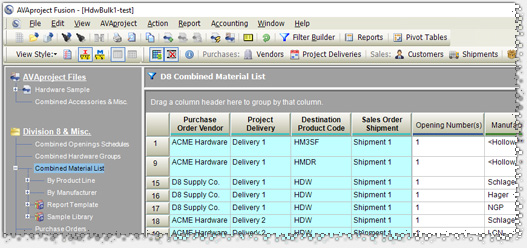|
The AVAproject Fusion Quickbooks Online (QBO) Plugin allows products to be sourced, organized, and pushed directly into Quickbooks Online as purchase order and estimate documents.
Built upon a powerful data extraction engine, AVAproject Fusion allows users of AVAproject to harvest project data to build highly customized reports and pivot tables, as well as move data directly into many accounting/ERP platforms. Through the use of specialized "plugins", AVAproject Fusion is able to integrate directly with virtually any API enabled accounting software.
Intuit Quickbooks needs no introduction - originally released in 1983, it has become one of the world's most popular accounting programs. Its successor, the Quickbooks Desktop application has been used by companies all over the world since 1998, and was among the first accounting systems for which an AVAproject Fusion plugin was developed. To this day, it remains one of the most widely used Fusion Accounting plugins.
With many businesses looking to the cloud to solve remote access challenges brought on by staff spread out over various physical locations, there's been an increased interested in the Quickbooks Online alternative. In response, AVAware has developed the AVAproject Fusion Quickbooks Online Plugin to provide support for this increasingly popular accounting system.
Quickbooks Desktop vs Quickbooks Online (QBO)
The most obvious difference between Quickbooks Desktop and QBO is the fact that QBO is cloud-based (hosted on internet servers) and companies access and interact with their data over the internet. For companies that require multiple users to access Quickbooks remotely, and/or from mobile devices, this greatly simplifies access. The user interface of QBO has also been redesigned and simplified for ease of use for non-accountants.
It's important to note that there are no industry-specific editions of QBO (as there are with Quickbooks Desktop) and the license fee model for QBO is different as well. Additionally, there are also some functional & procedural differences with QBO that should be taken into account when deciding between Quickbooks Desktop and QBO. For instance, QBO does not support Sales Orders. Estimates may be created as replacements, and later converted into Invoices. However, if Sales Order functionality is necessary, Quickbooks Desktop will be the preferred option. | 
|
The AVAproject Fusion QBO Plugin
The AVAproject Fusion QBO Plugin facilitates direct integration with Quickbooks Online through the use of Intuit's QBO API. An "API" or "Application Programming Interface" is a tool provided by the accounting system developer (Intuit) to allow communications between their software (Quickbooks Online) and third-party packages such as AVAproject Fusion.
As with all Fusion accounting/ERP plugins, the QBO Plugin activates several additional user interface options in Fusion. Once installed, a new set of tools become available, as well as a new toolbar to access them.
The Quickbooks Online Plugin offers a number of product specific settings within Fusion and can be set up right from the toolbar.

The AVAproject Fusion user interface, with the Accounting Toolbar outlined at the top, and the
Fusion QBO Plugin Settings window displayed below
Quickbooks Online, like most accounting systems, allows users to maintain lists of vendors and customers for the purposes of creating orders, generating invoices, making payments, managing billings, etc. AVAproject Fusion is able to access these lists directly and coordinate AVAproject data with them.
The Vendor Directory allows users to map manufacturers of products and materials from the AVAproject Material List to Vendors in QBO. During the "sourcing" process, this allows products to be grouped by the vendor from which they are being purchased rather than simply by their manufacturer.
The Customer Directory allows Customers to be defined and mapped to the Customer List in Quickbooks Online.
The Material List in AVAproject Fusion (when accounting/ERP plugins are present) offers four new columns for the purposes of sourcing.

The AVAproject Fusion Sourcing Columns | Vendors can be populated automatically using the Vendor Directory mappings, or selected manually as ordering needs require.
Deliveries (for purchasing) and Shipments (for sales) are defined per-project, and are simply logical units for which to break up the orders and billings. |
They may be dates, phases, floors, etc. depending on how the given project is being scheduled. Deliveries and Shipments can be specified for individual or groups of products, simply by highlighting relevant rows of the Material List.
Once the materials are sourced, AVAproject Fusion organizes the data and creates interim "order documents" that are displayed in a list, and can be previewed within Fusion itself. The preview dialog also allows additional data to be entered, including delivery dates, order numbers, quote numbers, etc. Notes can be added for the entire order, or even for each line item specifically. | 
Sourcing Columns populated with Vendor, Delivery and Shipment |
These documents can then be pushed into Quickbooks Online with the click of a button, creating purchase orders without any manual re-entry. Additionally, the order numbers assigned by QBO are returned to AVAproject Fusion, where they are saved for reference.
The saved purchase order numbers can be used to report on the status of materials in Fusion as well in AVAproject. AVAproject users can pull up a summary window for any given opening, showing any and all purchase orders generated for the given door, frame or installed hardware.
For more information on the AVAproject Fusion QBO Plugin, or any AVAproject Fusion accounting/ERP plugins, contact AVAware Customer Support.
|